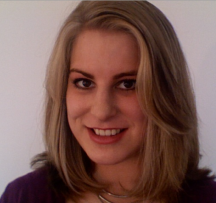By Biljana Likic
~~~
I don’t know how to start this, so I’ll just dive right in.
Basically, history has a way of conceptualizing its eras and stereotyping the people that lived in them until all somebody thinks about when a person says “Victorian” is corsets and top hats.
Today, I’m going to try to break that.
The most important thing I’ve learned from studying history is that people are people no matter what time period they lived in. Sensibilities were different, and rights fluctuated between just and unjust by today’s standards, but when it comes down to it, the fundamental aspects of human nature (an admittedly moot term) stayed the same. You can see this in any candid primary source that still exists from hundreds of years ago; private letters, diaries, and most importantly, the works of shit-disturbing writers, the kind that wanted to shock the niceties out of people by writing inflammatory pamphlets and books. What always strikes me is that many, including myself, are often delighted when they read sarcastic or silly commentaries written by supposedly rigid diplomats of times past. Not everything was stuffy; people had a sense of humour then, too. It’s easy to forget that, since so much of history is focussed on war and drama.
But that is neither here nor there. The argument that I’m having so much trouble trying to put into words is mainly for the benefit of those who are interested in writing period novels.
This is pretty much the gist of it:
Don’t let humanity play second fiddle to plot and history. Never let the preconceived notions of a time period restrain and shackle your personalities to the ground. Always break the mould. The most intriguing period novels are the ones where the characters sound like they could be alive today. When those kinds of books crop up, people are impressed by how realistic the characters are, “even though it doesn’t take place in the present day.”
But why should that be impressive? That should always be the case. You can go on and on about etiquette and details, but if you don’t show how these affected the layman of the time, who cares? It’ll just read like a book on etiquette and details. You can find those separate of fiction, written by historians who have dedicated their lives to accuracy. Your job is not to list the details, but apply them to your story. Get into the skin of your character and imagine what it would be like to live in a time when having a fashionable silhouette included not being able to breathe properly.
The next point is this: If a time period seems mysterious to you, it’s probably because you haven’t done your research. It’s like a magic trick; it seems amazing until you figure out how it’s done. And then the time period becomes fascinating because you’ve suddenly realized that all the people that lived in the 12th century are the same people living today. There’s nothing particularly special about them. They just lived in a different manner. So you start imagining what it would be like to live with no electricity, or no cheap books, or no fridges. It becomes an exercise of the imagination, limited by their appliances and technologies, but broad in the opportunities of exploration. You suddenly find yourself having to come up with solutions. Say you have no water. What do you do? You go to the well. Where is it? Who do you meet on the way? What if the water’s poisoned? What if you fall in? Get stabbed? Are murdered? How are they going to find the killer when there’s no such thing as dusting for fingerprints? Will you ever get your revenge? Because now that you don’t live in 2011 anymore, revenge for murder by murder is normal and perhaps expected. But can you live with that? Killing is never easy.
My last attempt at driving this home is to have you consider the range of human emotion. Everything, hate, love, doubt, fear, happiness, rage, and especially the need to fit in, existed then as much as now. Don’t bury it under random facts just to show off how much you know about the history. Be flexible with your portrayal of personalities and never forget that the only difference between people then and people now is time and access to knowledge.
And lastly, never let it be said that people back then didn’t have a sense of humour.
“Wishing to teach his donkey not to eat, a pedant did not offer him any food. When the donkey died of hunger, he said: ‘I’ve had a great loss. Just when he had learned not to eat, he died.’” (Philogelos 9)
Lol.
~~~
Biljana Likic is an aspiring author, currently revising her first novel, TIME IS A FUNNY THING. She is in her first year of university, where she can’t wait till she’s out so she’ll finally have all the time in the world to write. You can visit her blog here and follow her on Twitter here.











 I think about couples as, well, a couple. They’ve got to spark in some way, and while not every couple I write is going to explode with some kind of mad passion for one another, they need to stir up something in each other. They’ve got to complement one another, push one another, support one another.
I think about couples as, well, a couple. They’ve got to spark in some way, and while not every couple I write is going to explode with some kind of mad passion for one another, they need to stir up something in each other. They’ve got to complement one another, push one another, support one another.







 LTWF Facebook
LTWF Facebook LTWF Twitter
LTWF Twitter